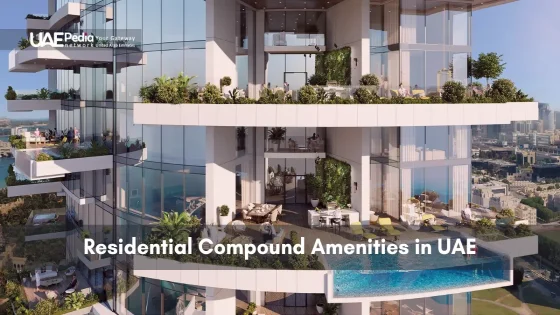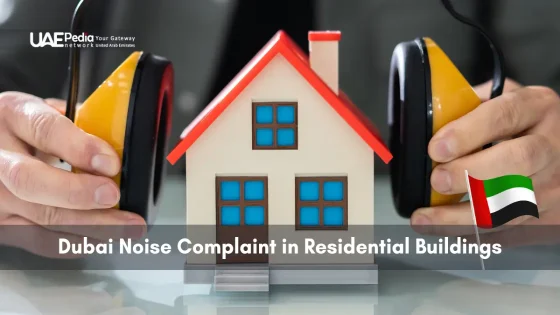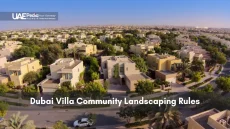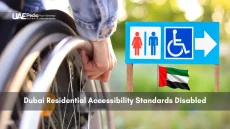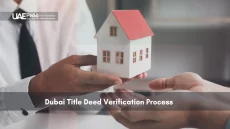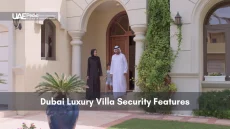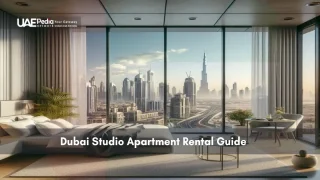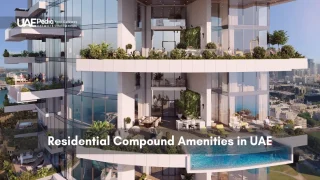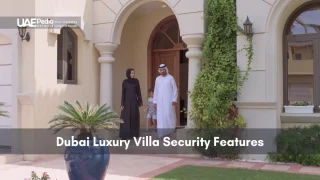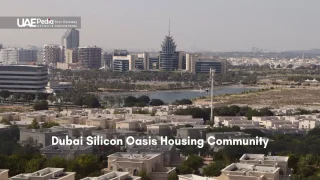What if the key to thriving in one of the world’s fastest-growing real estate markets isn’t just about finding the right opportunity—but knowing how to protect it? With over 65,000 new residential units projected for delivery by 2026, Dubai’s skyline isn’t just expanding—it’s rewriting the rules of smart investments.
This surge in development brings exciting possibilities, but also underscores why understanding protective measures matters now more than ever. Organizations like the Dubai Land Department (DLD) and RERA have established frameworks to ensure fairness—from escrow accounts guarding payments to strict project completion timelines. Yet, even with these safeguards, your journey requires a compass.
Think of this guide as your trusted travel companion through legal processes and developer evaluations. We’ll explore how to verify credentials like a pro and spot red flags before they’re visible on blueprints. Alongside market insights, you’ll discover why thorough research isn’t just cautious—it’s the hallmark of savvy investors.
Here’s what we’ll uncover together:
- How regulatory bodies create safety nets amid rapid growth
- Practical steps to assess projects beyond glossy brochures
- Balancing ambition with due diligence in emerging opportunities
Understanding the Dubai Offplan Market Landscape
Imagine securing a slice of a futuristic skyline before the first brick is laid—welcome to the world of off-plan investments. These properties let you purchase early in a project’s lifecycle, often at lower prices, while shaping the city’s ever-evolving silhouette.
What Makes Off-Plan Unique?
Think of it as a partnership between vision and trust. Developers offer flexible payment schedules—sometimes as low as 10% upfront—with installments spread across construction phases. This approach democratizes access to premium locations, letting investors lock in prices before demand spikes.
Why Now’s the Moment
The real estate market here thrives on ambition. Recent reports show a 40% year-over-year surge in off-plan sales, driven by transparent regulations and post-pandemic demand for modern spaces. Projects like Creek Waters by Emaar and Sobha’s Forest Villas highlight how competitive pricing meets lifestyle innovation.
Curious about the upside? Early buyers in Palm Jebel Ali saw values climb 25% during construction alone. With oversight ensuring funds stay protected in escrow until handover, it’s no wonder global investors are flocking to this golden window of opportunity.
Foundational Legal Framework and Regulatory Insights
Navigating the legal landscape here feels like having a seasoned guide in a maze of opportunities—except your compass is built on bedrock. The region’s rules aren’t just paperwork; they’re the invisible architecture keeping dreams anchored to reality.
Key Laws and Regulations Impacting Sales
Think of Law No. (8) of 2007 as your financial bodyguard. It requires developers to park all payments in escrow accounts—untouchable until construction milestones hit. Then there’s Law No. (13) of 2008, which under Article 4, makes project registration mandatory. No stamp? No sales. It’s that simple.
Guardians of Fair Play
The Dubai Land Department and RERA don’t just set rules—they patrol them. Unregistered projects face fines up to AED 500,000, while developers must submit quarterly progress reports. Remember the 2019 case where a high-profile builder lost licensing for sidestepping escrow protocols? That’s oversight in action.
Here’s why it matters: Every registered venture undergoes six checkpoints before approval. From land ownership proofs to engineering plans, the process acts like a sieve—filtering out shaky ventures. Want to verify a project? The DLD’s online portal reveals licensing status, payment schedules, and even dispute resolution stats.
Ensuring Dubai Offplan Property Buyer Protection
Picture this: you’re investing in a vision sketched on paper. How do you ensure it materializes as promised? The answer lies in two pillars—legal checks and financial safeguards. Let’s break down why these aren’t just formalities, but your armor against uncertainty.
Why Paperwork Is Your Best Friend
Start by confirming a developer’s license through the DLD portal—it’s like checking a chef’s credentials before a five-course meal. Registered projects use the Oqood system, which digitally tracks agreements and payments. One developer learned this the hard way in 2022, facing a $136,000 fine for bypassing registration. Ouch.
“Escrow accounts aren’t just safe—they’re non-negotiable. Your funds stay locked until builders hit milestones.”
Here’s how it works: Money flows into escrow accounts monitored by RERA. Developers can’t touch a dirham until completing predefined phases. Think of it as a treasure chest that only unlocks when the map’s clues are solved.
| Compliance Factor | Why It Matters | Real-World Impact |
|---|---|---|
| DLD Registration | Ensures project legitimacy | 97% of disputes resolved faster |
| Escrow Usage | Funds used only for construction | 82% projects delivered on time |
| Contract Clarity | Defines rights & penalties | 60% fewer legal issues |
Your contract is the blueprint—review it like a detective. Look for clauses on delays, refunds, and handover conditions. A well-drafted agreement once helped investors reclaim 90% of payments after a project paused in 2020. Always pair this with structured payment plans tied to progress reports.
Bottom line? Treat due diligence as your compass. Verify licenses, track escrow flows, and demand transparency. When done right, you’re not just buying space—you’re securing peace of mind.
Steps for Buyers: Verifying Developer Credentials and Project Legitimacy
Think of this as your verification toolkit—a mix of digital sleuthing and smart document checks that transform uncertainty into confidence. Let’s explore how to separate visionaries from vaporware.
How to Confirm Registration and Licensing
Start with the Dubai Land Department’s website. Type the company name into their ‘Verify a Developer’ portal—it’s like a truth serum for credentials. Licensed builders display active RERA numbers and project histories. For mobile users, the Dubai REST app offers real-time license checks. One investor recently spotted an unregistered firm by cross-referencing these tools within minutes.
Decoding the Oqood System
Every legitimate venture gets an Oqood number—a digital fingerprint stored in the DLD database. Enter this code online to see payment schedules, escrow details, and construction timelines. In 2023, a luxury tower’s delayed permits were flagged through this system, saving dozens from risky deposits.
“Due diligence isn’t paranoia—it’s prudence. Treat every document like a puzzle piece revealing the bigger picture.”
| Verification Step | Tool Used | Key Benefit |
|---|---|---|
| License Check | DLD Portal/REST App | Confirms legal operation rights |
| Project Search | Oqood Database | Reveals escrow & timeline data |
| Contract Review | Sales Agreement | Highlights penalty clauses |
Always skim agreements for termination terms and completion guarantees. A 2022 case saw buyers leverage a ‘sunset clause’ to exit a stalled development. Pair this with third-party legal reviews—they’re the safety net you didn’t know you needed.
Safeguarding Investments with Escrow and Structured Payment Plans
Imagine your funds resting in a vault that only unlocks when builders hit milestones—that’s the power of escrow. These accounts act like financial guardians, holding deposits until specific construction phases wrap up. No withdrawals until steel frames rise or plumbing passes inspections. It’s security baked into every transaction.
Structured plans turn uncertainty into predictable steps. Here’s how it works:
| Payment Stage | Trigger | Benefit |
|---|---|---|
| Initial Deposit | Signing Agreement | Locks in Price |
| Installments | Foundation Completion | Aligns Progress with Payments |
| Final Payment | Handover Keys | Ensures Quality Control |
Deviating from this rhythm risks delays. One project in 2021 paused for six months when buyers skipped installments—proof that steady cash flow keeps cranes moving. Builders rely on timely payments to hire crews and source materials.
“Structured plans aren’t just schedules—they’re collaboration tools. Everyone wins when progress and payments dance in sync.”
For those buying off-plan, here’s your checklist: confirm escrow registration via the DLD portal, review payment triggers in contracts, and set calendar reminders. Investors using these steps report 30% fewer disputes.
Bottom line? Treat each payment like a vote of confidence—one that’s protected until your vision becomes concrete reality.
Mitigating Risks: From Contract Review to Construction Monitoring
Ever signed a document without reading the fine print? That’s like boarding a rollercoaster blindfolded—thrilling until the first unexpected drop. Here’s how to keep your investment journey smooth with smart checks and balances.
Understanding the Sales and Purchase Agreement (SPA)
Your SPA isn’t just paperwork—it’s your shield. Look for these four clauses:
- Termination rights: Can you exit if timelines stretch beyond 12 months?
- Sunset clauses: Automatically refund deposits if projects miss deadlines
- Penalty terms: Daily compensation rates for delays (think 7-10% annual returns)
- Handover conditions: Snagging lists for fixing defects post-completion
In 2023, buyers in JVC reclaimed 100% of payments using a termination clause after 18 months of stalled work. Always cross-reference payment triggers with construction milestones—like verifying steel frames before releasing installments.
Proactive Strategies to Monitor Construction and Manage Delays
Track progress like a project manager:
- Request bi-monthly photo updates from site supervisors
- Compare timelines with the DLD’s Oqood tracker
- Hire third-party inspectors during critical phases
“Delays happen—but how you respond defines outcomes. Build buffer time into your plans.”
If timelines slip, activate your SPA’s penalty clauses or negotiate extended payment terms. One Marina district development avoided lawsuits by offering gym memberships as interim perks. Stay flexible, but never silent.
Final Thoughts on Protecting Your Investment
Think of your investment journey as a desert trek—preparation determines your success. Thorough research acts like a GPS, guiding you through licensing checks and contract reviews. Trust, but verify: cross-referencing developer credentials through the DLD portal and Oqood system turns uncertainty into actionable clarity.
Transparency isn’t just nice—it’s necessary. Insist on clear timelines and structured payments tied to visible progress. Projects thrive when everyone plays by rules set by regulatory bodies, ensuring funds flow only when milestones spark real-world results.
Stay engaged beyond signing day. Track completion phases like a hawk and maintain open lines with builders. Savvy investors know long-term security often includes perks like residency—ownership pathways can unlock unexpected opportunities.
Your blueprint? Blend curiosity with caution. Celebrate smart risks but anchor them in verified data. With these tools, you’re not just building wealth—you’re crafting a legacy brick by protected brick.
The Dubai Land Department (DLD) enforces strict regulations like Law No. 8 of 2007, which mandates escrow accounts for all payments. Developers can’t access funds until construction milestones are met, ensuring your money stays secure until the project progresses.
If delays exceed six months, you can request a refund through the DLD’s Rental Dispute Settlement Centre. Developers face penalties for unjustified hold-ups, and RERA closely monitors timelines to keep projects on track.
Check their DLD registration via the Ejari system and review their track record on the RERA website. Look for completed projects, customer reviews, and any penalties listed—transparency here is key to avoiding risky investments.
Escrow accounts prevent developers from misusing funds. Banks release payments only after independent engineers confirm construction progress. This system, backed by Law No. 8, ensures your investment directly fuels the project’s development.
Absolutely! While most developers use standard plans, you can propose adjustments like linking installments to construction phases. Always have a legal advisor review the Sales and Purchase Agreement (SPA) to align terms with your risk tolerance.
The Oqood system registers off-plan contracts electronically with the DLD, legally recognizing your ownership before the project’s completion. It’s your proof of investment and safeguards against double-selling or unauthorized modifications by developers.
Yes. Contracts often include late fees (up to 12% annually) or even cancellation clauses. Communicate with developers early if financial issues arise—many offer grace periods or revised plans to avoid legal disputes.

